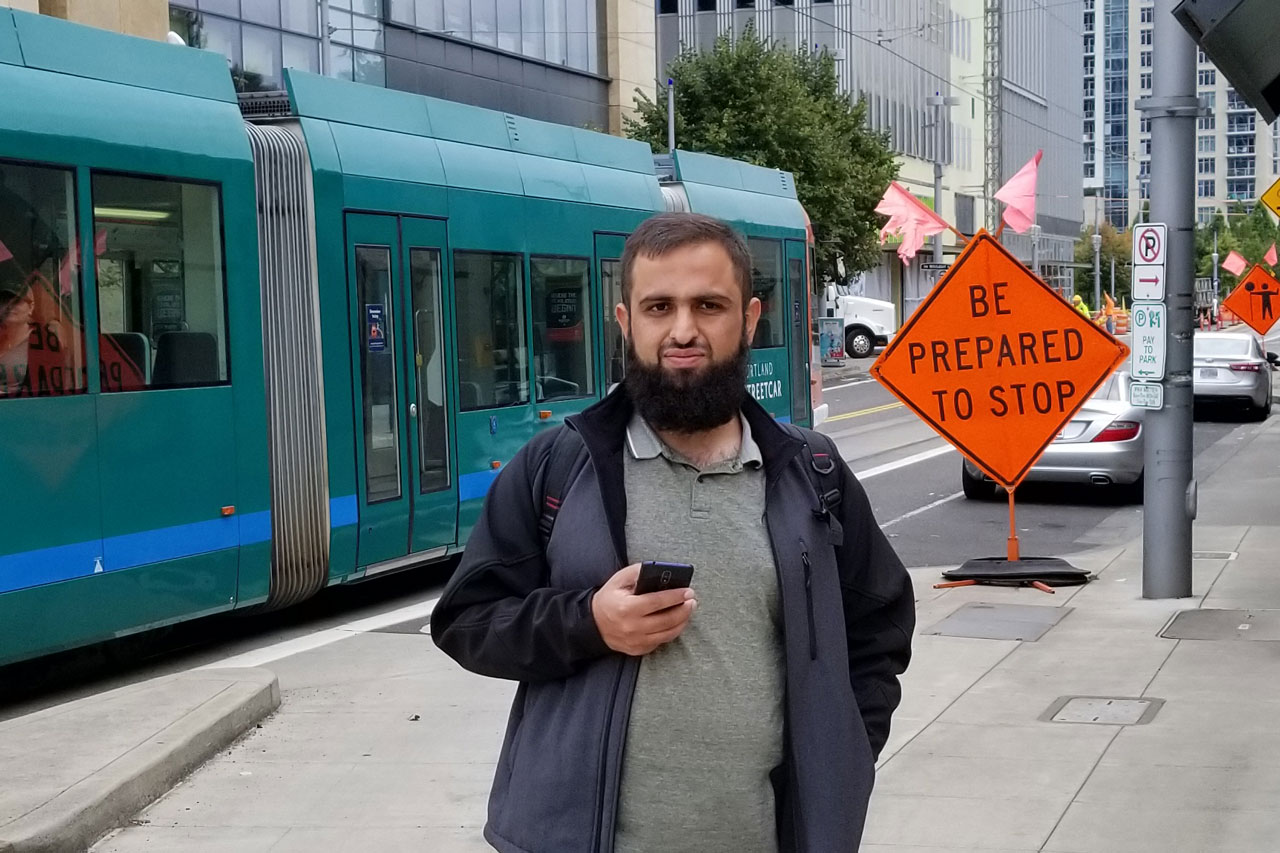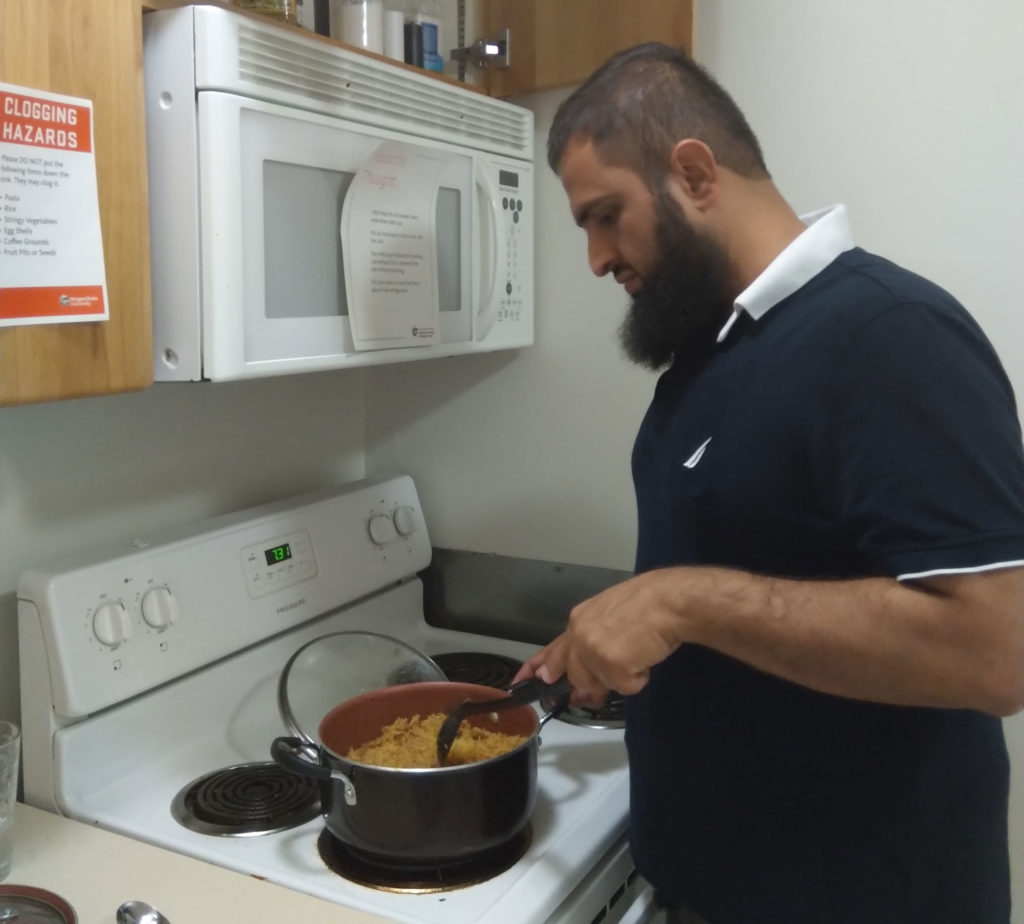Solutions-Oriented Scholars

USPCASE scholar wants to bring renewable power to under-served communities in Pakistan
USPCASE scholar Faisal Nawab is focused on bringing renewable power to under-served communities in Pakistan
Which sector uses the most energy? Chances are, you already know it’s the industrial sector, which accounts for about one-third of energy use in the U.S., and power-hungry manufacturing accounts for a little more than half of that fraction.
Chances are, you don’t think about agriculture as being a big energy consumer, but Faisal Nawab does. “I belong to a family that depends on agriculture products such as wheat and melons,” he says. And, the family farm requires electric pumps to irrigate crops.
“When I was in high school, there were about 18 hours a day of energy cut-offs,” Nawab recalls. “Farmers in my village were not able to provide water to their fields, and all the crops got ruined. From that time, I decided to study energy engineering.”
Nawab earned a bachelor’s degree in electrical engineering, but he didn’t sign on with an established utility or seek industry work. He kept thinking about the needs of villages like his hometown, and that’s what prompted him to seek out a degree in renewable energy. He found what he was looking for at the University of Engineering and Technology, Peshawar (UET-P), where he became a USPCASE scholar.
Taking the renewable path
“The only solution to the energy crisis of Pakistan is decentralized, renewable energy, and there is not enough work done in that field,” Nawab says. “Without sufficient energy, the economy of Pakistan cannot be stabilized and the country economy will always rely on foreign loans with high interest rates.” Ending this cycle is what motivates Nawab. “It encourages me to enhance the energy security of Pakistan.”
Currently, Nawab is a visiting scholar at Oregon State University. There, he’s conducting research on the waste-to-energy system and the biomass potential of Saccharum munja forests in the Lakki Marwat District in Pakistan’s Khyber Pakhtunkhwa Province. A master’s candidate, Nawab has also interned for Peshawar Electric Supply Company, where he learned about distributing power throughout a district and protecting the power system from different faults.
In off hours, Nawab hikes, explores Oregon and practices culinary arts. “I’m an expert cook and can cook any Pakistani or Indian spicy food,” he says.

What does Nawab plan to do with his Master’s degree? Clear a path to bring energy home.
“There are two main problems in the Pakistani power sector. The first is production from expensive fuels, and the other is the capacity of the transmission lines,” he says. “The only solution to the problem is decentralized renewable power plants.”
That’s what Nawab hopes to bring to rural Pakistan by building a social organization intent on solving energy sector problems. Five years after picking up his diploma, he wants to be designing and installing small power plants in areas where no power lines currently run.
“I also will try to make different renewable energy technologies usable so they can be operated by less-trained people,” he says. “The main focus will be usability of the technology because many people of rural Pakistan are not well educated.”
By Betsy Loeff